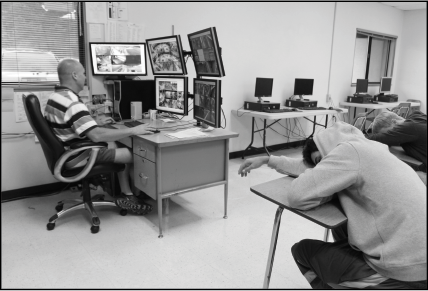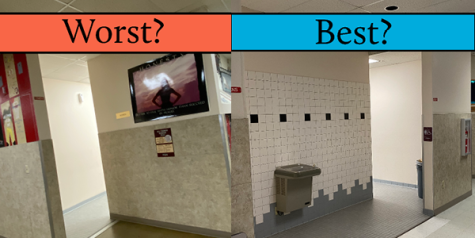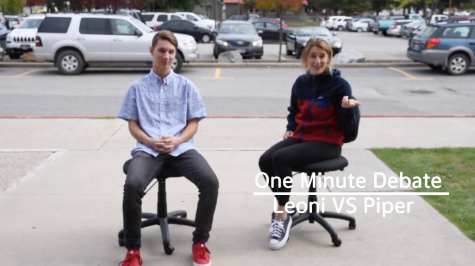ISS EFFECTIVENESS
Is in-school suspension an effective form of punishment?

NAP TIME: Chandler Brewington and Brandon Carlin sit in ISS
This year I have noticed more students being taken off to ISS (In-School Suspension). It seems that it is getting easier and easier to get ISS these days, which leads many to wonder: is it effective?
Essentially, ISS is a room you go to when you’re in trouble. You are supposedly not allowed to play on your phone, listen to music, or relax. You are only allowed to do homework, and there are several computers available if you need them.
There are many ways you can be required to go to ISS, some of which include: excessive tardies, not showing up for detention or Wednesday School, being 45 minutes late to your first period, and things you would normally have out of school suspension for (fighting, getting caught with drugs, etc).
The administration this year is trying to put more focus on in-school suspension rather than out-of-school suspension, since some students see out-of-school suspension as more of a vacation than a punishment.
However, spending all of this time out of class seems like it would simply take away from a students learning. Wouldn’t a student simply get more behind on their assignments if they are spending all period, or all day, in ISS?
Likewise, since some students may be happier to sit in ISS and do nothing rather than have to listen to their teacher, does ISS really solve the problem?
Mr. Martz, Educational Assistant said, “Think of lunch detention as the first layer, Wednesday school as the second layer, and ISS as just the third layer of discipline. It’s simply in school suspension rather than out of school suspension.
Although this is a good idea, I think that they may be overusing ISS. I don’t believe that every student they send to ISS necessarily deserves to be there, or that ISS resolves most problems.

Delia Boyd is a senior and is new to Cedar Post this year as a staff member. She writes articles for the newspaper and website itself, and assists the...

Cooper King is a senior and is Editor-in-Chief for the Cedar Post. This is his third year on staff; previously he took on the roles of Photo Editor and...











